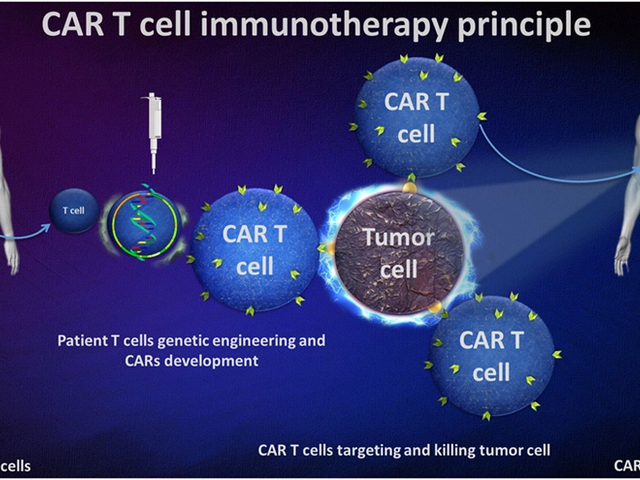Gut‑Brain Axis: What It Is and Why It Matters
Ever wonder why a bad lunch can ruin your mood? That’s the gut‑brain axis at work – a two‑way street between your stomach and your head. Your gut sends signals to the brain through nerves, hormones, and even tiny microbes. In return, the brain tells the gut how to move food along and how much acid to make. When this conversation gets messed up, you might feel bloated, anxious, or fatigued.
What Is the Gut‑Brain Axis?
The gut‑brain axis is basically a communication network that links your digestive system with your central nervous system. The vagus nerve is the main highway, but chemicals like serotonin (which is 90% made in the gut) and short‑chain fatty acids from bacteria also carry messages. Think of your gut as a second brain that helps regulate emotions, stress response, and even sleep patterns.
Research shows that an imbalance in gut bacteria – called dysbiosis – can trigger mood swings, irritability, and even worsen conditions like depression or IBS. On the flip side, managing stress and getting enough sleep can improve the diversity of your gut microbes, creating a healthier feedback loop.
Simple Ways to Support Your Gut‑Brain Connection
You don’t need a lab to start fixing the gut‑brain link. Here are a few easy habits that work for most people:
Eat fiber‑rich foods. Veggies, fruits, whole grains, and legumes feed the good bacteria that make short‑chain fatty acids. Those acids calm inflammation and boost brain health.
Choose fermented foods. Yogurt, kefir, sauerkraut, and kimchi sprinkle live microbes into your system. A handful a day can raise the count of helpful bacteria.
Limit processed sugar and artificial sweeteners. They feed harmful microbes and can raise blood sugar spikes that stress the nervous system.
Stay hydrated. Water helps keep the gut lining smooth and supports the movement of waste, which reduces the chance of bacterial overgrowth.
Move your body. Even a short walk releases hormones that help the gut barrier stay strong and encourages beneficial microbes to thrive.
Lastly, practice stress‑reduction techniques like deep breathing, meditation, or a hobby you love. Lowering cortisol (the stress hormone) gives the gut a break from constant “fight‑or‑flight” signals.
Putting these steps together creates a healthier gut‑brain dialogue. You’ll likely notice steadier energy, clearer thoughts, and less gut upset. Keep an eye on how food, mood, and sleep interact – that’s the real feedback you need to fine‑tune the system.
Remember, the gut‑brain axis isn’t a one‑time fix. It’s a daily conversation. By feeding the right microbes, moving regularly, and keeping stress low, you give both your gut and your brain the best chance to work together smoothly.

How Atrophic Gastroenteritis Links to Chronic Fatigue Syndrome
Explore the medical link between atrophic gastroenteritis and chronic fatigue syndrome, covering shared mechanisms, evidence, and management tips.
Read More




